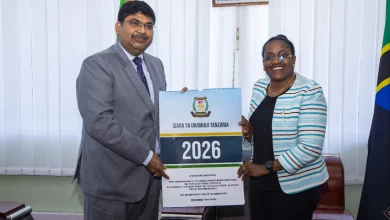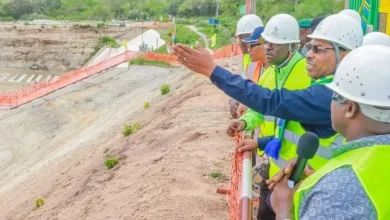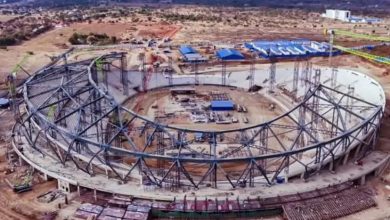TZ stresses fair, accessible climate financing

BRAZIL: TANZANIA has called on the newly established Fund for Responding to Loss and Damage (FRLD) to ensure fair, accessible and sustainable financing that delivers real relief to countries most affected by climate change.
The high-level delegation from Tanzania including the country’s envoy to Brazil, Ambassador John Simbachawene and Dr Fred Manyika from the Office of the Vice-President, is attending the 30th Conference of the Parties (COP30) which opened in Belém, Brazil on Monday.
Speaking during the launch of the first Call for Funding Requests under the Barbados Implementation Modalities (BIM) at the COP30, the Special Envoy and Advisor to the President on Environment and Climate Change, Dr Richard Muyungi, said the fund’s success will be measured by how quickly and equitably it provides support to nations hardest hit by climate disasters.
“For Africa, the impacts of climate change are not abstract future risks, they are daily realities. Floods, droughts, cyclones and coastal erosion are already destroying lives, livelihoods and ecosystems across the continent,” Dr Muyungi said.
Dr Muyungi, who also chairs the African Group of Negotiators (AGN), stressed that the launch of the FRLD must not remain a ceremonial milestone, but rather mark the beginning of a credible global mechanism capable of protecting communities facing the harshest consequences of a crisis they did not cause.
Following the approval of the Barbados Implementation Modalities, the FRLD Board has entered its start-up phase with an initial allocation of 250 million US dollars (about 612.6bn/-) to support interventions for 2025–2026.
“The first call for funding is a test of trust and ambition. The scale of loss and damage confronting developing countries demands a predictable and replenishable financing framework,” he noted.
ALSO READ: ACT-Wazalendo expresses gratitude to Zanzibar voters
Dr Muyungi outlined three key expectations from Africa that will determine whether the fund delivers real climate justice. Chief among them is the need for adequate and predictable resources, stressing that sustainable replenishment is essential to meet the long-term needs of countries bearing the brunt of climate disasters.
He also underscored the importance of institutional coherence between the FRLD, the Santiago Network and the Warsaw International Mechanism, to ensure that global responses to loss and damage are coordinated, efficient and complementary rather than fragmented.
In addition, Dr Muyungi called for equitable access and inclusivity, highlighting that simplified procedures and technical support will be crucial for least developed countries that often lack the institutional capacity to navigate complex funding systems.
“The credibility of this new mechanism will depend on how accessible it is to those on the frontlines. Resources must flow rapidly, directly and transparently to affected countries,” he said.
Dr Muyungi reaffirmed Africa’s readiness to work closely with the FRLD Board, Secretariat and partners to ensure that implementation reflects both urgency and fairness.
“The African Group stands ready to engage constructively so that this fund becomes a lifeline for millions, not just another institution of good intentions,” he added.
The summit, hosted in the Amazon region, carries global significance for advancing international cooperation and accelerating the implementation of the Paris Agreement.
Tanzania’s active participation, led by its high-level delegation, demonstrates the nation’s strong commitment to addressing the climate crisis and its strategic role within the African Group of Negotiators.
Tanzania’s key priorities for this conference include ensuring the full operationalisation of the Loss and Damage Fund with predictable financing, advancing the implementation of National Adaptation Plans (NAPs) and mobilising adequate climate finance for developing countries.
The Tanzanian delegation is determined to play an active role in shaping the global climate agenda and ensuring that the country’s specific vulnerabilities, strategic needs and development aspirations are fully reflected in the final outcomes of this critical conference.





